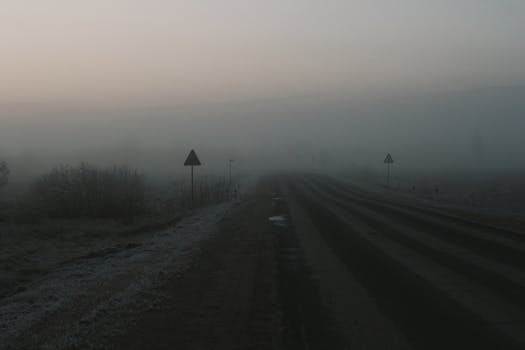
**
Are your kidneys sending you subtle SOS signals? Many people don't realize they have kidney problems until the disease is advanced. Kidney disease, or chronic kidney disease (CKD), affects millions worldwide and often progresses silently. Early detection is crucial for effective management and preventing irreversible damage. This article will explore six early warning signs that could indicate your kidneys are in trouble. Recognizing these symptoms can help you seek timely medical attention and potentially save your life. Understanding kidney failure symptoms is the first step to protecting your renal health.
6 Early Signs Your Kidneys Might Be in Trouble
Your kidneys are vital organs responsible for filtering waste products and excess fluid from your blood, regulating blood pressure, and producing hormones. When they malfunction, your entire body suffers. Let's delve into six common early warning signs of kidney problems:
1. Changes in Urination
This is one of the most prevalent early signs of kidney issues. Pay close attention to these changes:
- Frequent Urination: Needing to urinate more often than usual, especially at night (nocturia), can signal kidney dysfunction.
- Changes in Urine Color: Dark, foamy, or bloody urine warrants immediate medical attention. These changes indicate potential kidney damage and infection.
- Painful Urination: Burning or pain during urination (dysuria) often suggests a urinary tract infection (UTI), which, if left untreated, can ascend and damage your kidneys.
- Reduced Urine Output: Decreased urine production (oliguria) can indicate kidney impairment and should be evaluated by a doctor.
Understanding Urinary Tract Infections (UTIs) and Kidney Health
UTIs are a common cause of kidney problems, especially if left untreated. Symptoms like pain during urination, frequent urination, and cloudy urine should prompt a visit to your doctor. Early UTI treatment can prevent complications like pyelonephritis (kidney infection).
2. Swelling (Edema)
Fluid retention can manifest as swelling in various parts of the body:
- Facial Swelling: Noticeable puffiness around the eyes is a classic sign of kidney problems.
- Swollen Hands and Feet: Excess fluid can accumulate in the extremities, leading to swelling.
- Swollen Ankles: Similar to hand and foot swelling, ankle swelling can indicate kidney dysfunction and fluid overload.
The Link Between Edema and Kidney Failure
Edema occurs when your kidneys aren't efficiently removing excess fluid from your body. This fluid buildup can lead to swelling in various parts of your body, signaling a potential issue with your renal function. It's important to distinguish between generalized edema and localized swelling caused by other factors.
3. Persistent Fatigue and Weakness
Feeling unusually tired or weak, despite getting enough rest, can be a subtle yet important indicator of kidney disease. This fatigue is often linked to the buildup of toxins in the bloodstream due to impaired kidney function.
Anemia and Chronic Kidney Disease (CKD)
Kidney disease can lead to anemia, a condition characterized by low red blood cell count. Anemia contributes to fatigue and weakness, further highlighting the importance of checking your kidney health if you experience persistent tiredness.
4. Persistent Itching
Kidney disease can cause a buildup of toxins in the blood, which can lead to intense itching (pruritus). This itching is often difficult to relieve and can significantly impact your quality of life.
5. High Blood Pressure (Hypertension)
Your kidneys play a crucial role in regulating blood pressure. Kidney damage can disrupt this process, leading to hypertension. High blood pressure can further damage the kidneys, creating a vicious cycle.
Managing Hypertension and Protecting Kidney Health
Maintaining healthy blood pressure levels is crucial for preventing and managing kidney disease. Lifestyle changes, including diet and exercise, along with medication if necessary, can help control blood pressure and protect your kidneys.
6. Shortness of Breath
In advanced stages of kidney disease, fluid buildup in the lungs can cause shortness of breath. This symptom, often accompanied by other signs, indicates a serious kidney problem requiring immediate medical attention.
Understanding the Connection Between Kidney Disease and Breathing Difficulties
Shortness of breath is a serious symptom that shouldn't be ignored. If you experience shortness of breath, especially in conjunction with other symptoms like swelling or fatigue, consult your doctor immediately.
When to See a Doctor
If you experience any of these symptoms, especially if they persist or worsen, schedule an appointment with your doctor. Early diagnosis and treatment are essential for managing kidney disease and preventing further complications. Your doctor may recommend blood tests, such as a glomerular filtration rate (GFR) test and a blood urea nitrogen (BUN) test, to assess your kidney function.
Protecting Your Kidneys: Lifestyle Choices Matter
Maintaining a healthy lifestyle can significantly reduce your risk of developing kidney disease. Here are some key steps:
- Maintain a healthy weight: Obesity increases the risk of kidney disease.
- Control blood sugar levels: Diabetes is a major risk factor for kidney disease.
- Manage blood pressure: High blood pressure damages the kidneys.
- Limit alcohol consumption: Excessive alcohol intake can harm your kidneys.
- Stay hydrated: Drink plenty of water to help your kidneys flush out waste products.
- Follow a healthy diet: Reduce sodium, processed foods, and red meat intake.
Regular checkups and proactive lifestyle changes are essential for maintaining healthy kidneys. Don't ignore warning signs. Early detection and treatment can significantly improve your prognosis and quality of life. Taking care of your kidneys is an investment in your overall health and well-being.




















